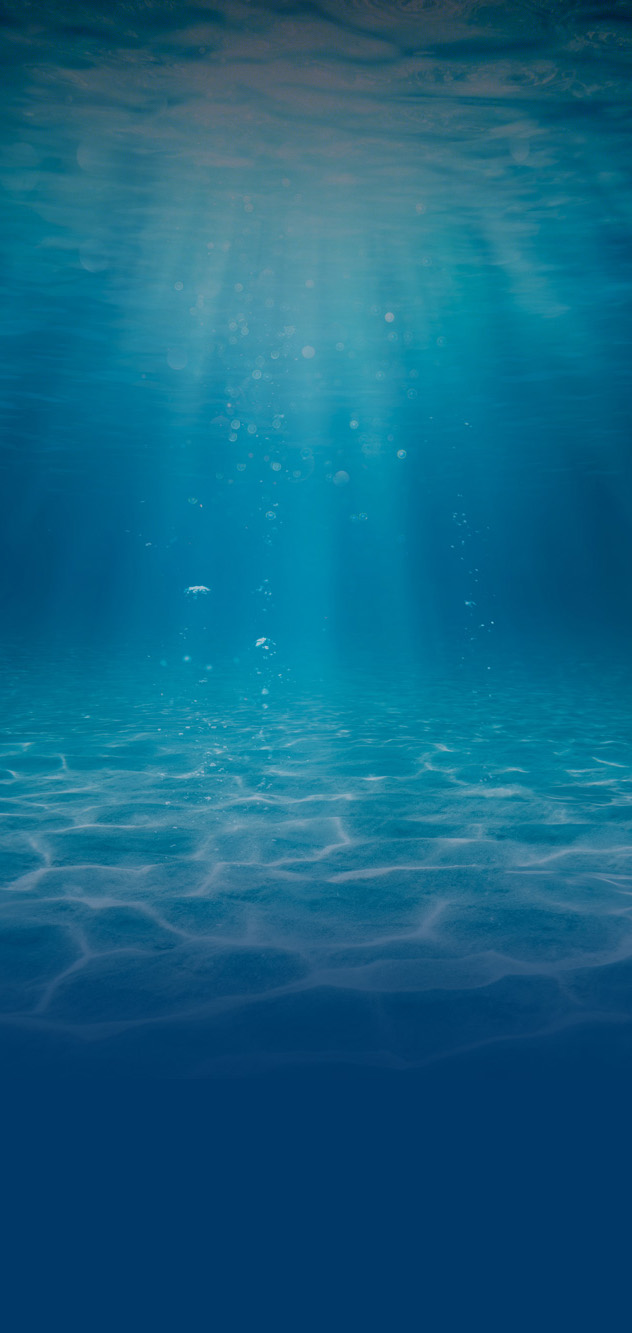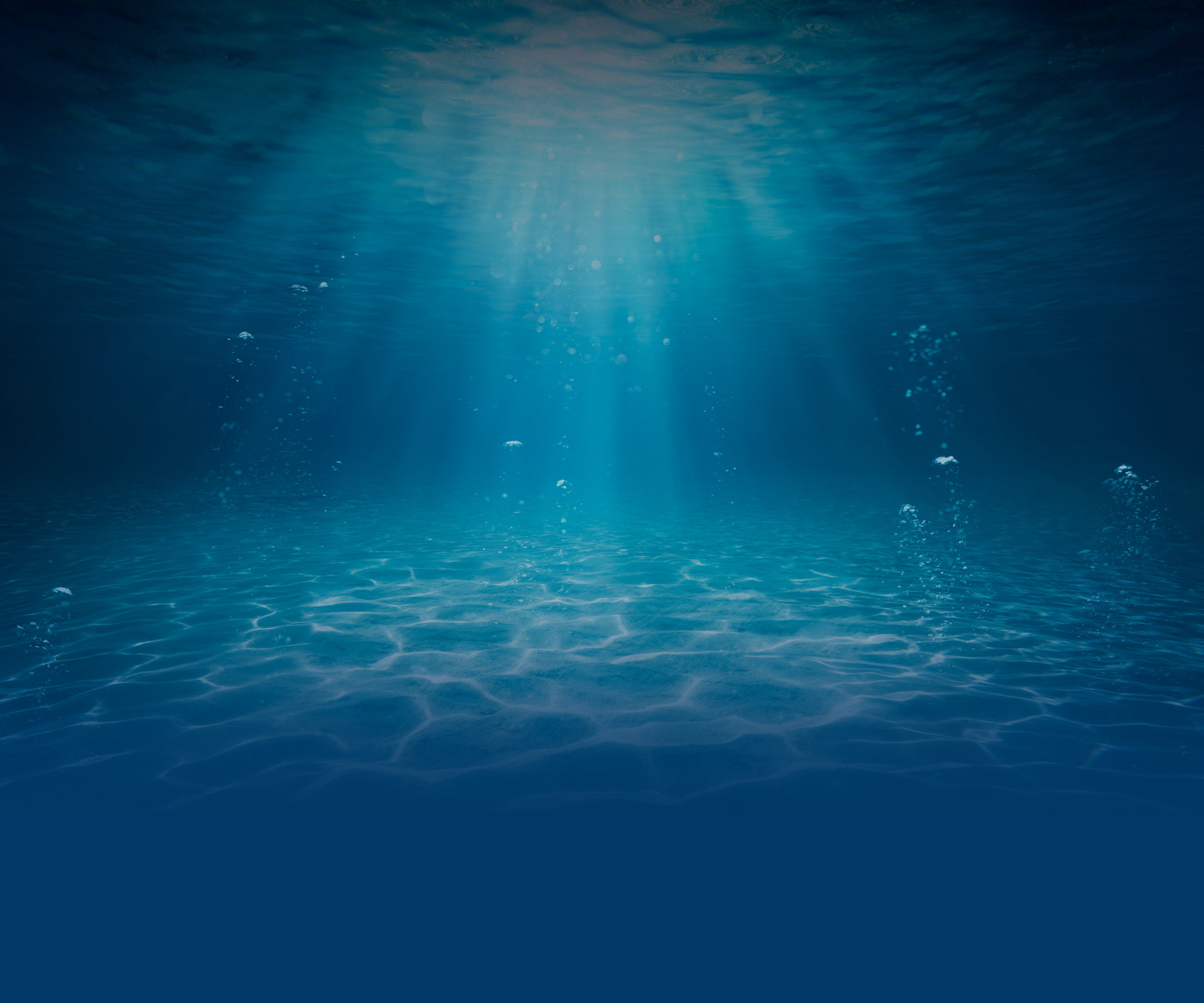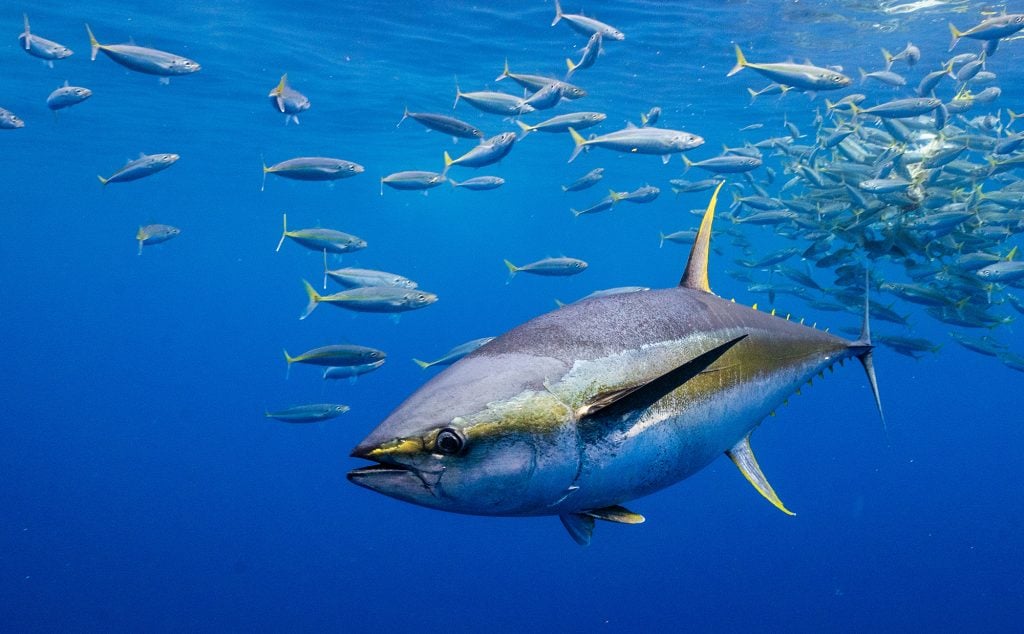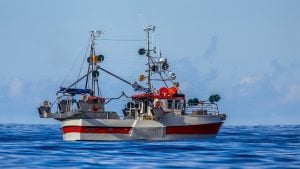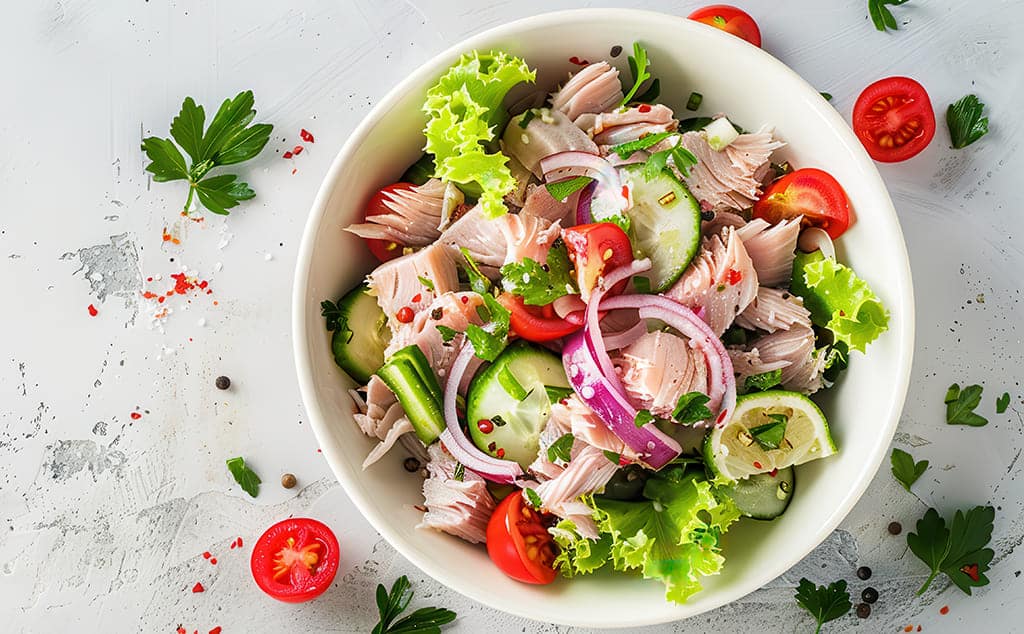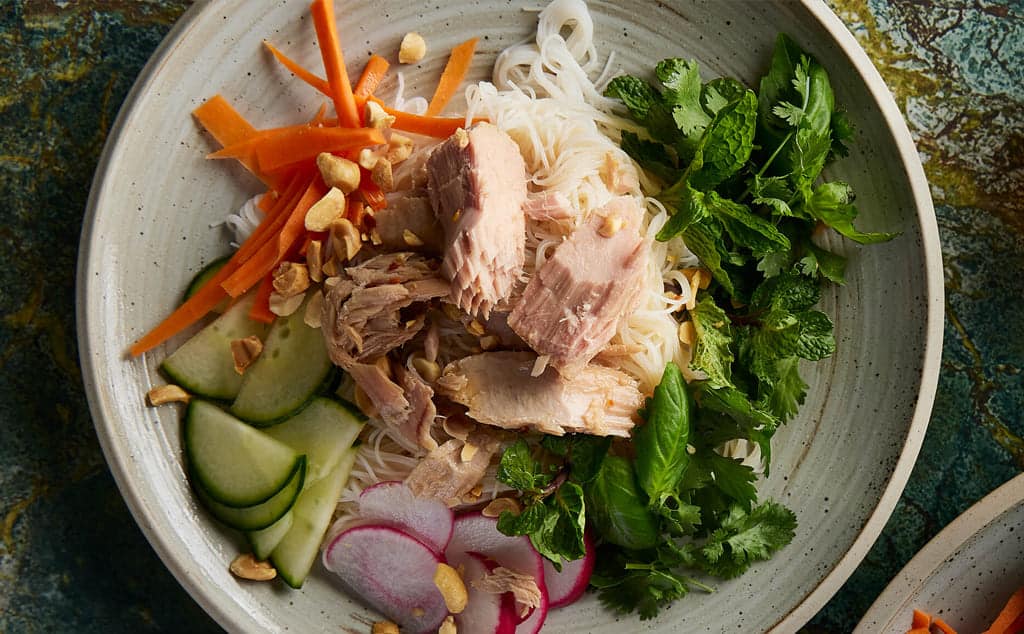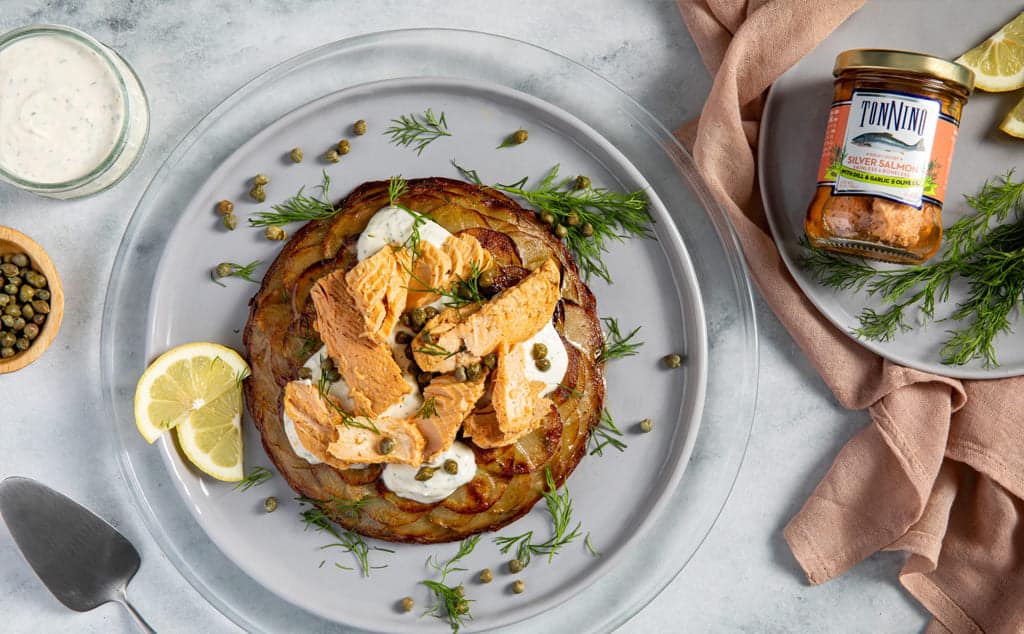Tuna, celebrated for its rich taste and versatility, has earned a place in cuisines around the world. However, behind every dish lies a pressing challenge. The rising demand for tuna has placed significant pressure on marine ecosystems, with overfishing and unsustainable practices threatening the survival of this iconic fish.
Globally, tuna fishing is not just an industry; it’s a lifeline for millions. Coastal communities rely on healthy fish stocks for economic stability, while consumers seek tuna for its nutritional value and culinary adaptability. Balancing these demands with the need for conservation is no small feat, but it’s essential.
At Tonnino, sustainability is more than a commitment—it’s a responsibility. By adopting innovative fishing methods, partnering with conservation organizations, and embracing practices that minimize environmental harm, we strive to protect marine resources for future generations. With your support, we can ensure a world where tuna remains abundant and oceans thrive.
Understanding the Threats to Tuna Populations
Overfishing: An Imminent Threat
Tuna is one of the most heavily fished species worldwide, with millions of tons caught annually. Overfishing occurs when tuna are harvested faster than they can reproduce, depleting their populations and creating a cascade of ecological consequences.
Some species, such as bluefin tuna, have been pushed to critically low levels, making them a focus for conservation efforts. This decline doesn’t just affect tuna—it disrupts entire ecosystems. As predators, tuna play a key role in maintaining balance in the ocean. When their numbers drop, smaller fish populations can grow unchecked, impacting coral reefs, kelp forests, and other marine habitats.
For coastal communities, overfishing also carries economic risks. Fishermen must travel farther to find adequate stocks, increasing costs and carbon emissions. Without sustainable practices, both marine life and human livelihoods face an uncertain future.
The Problem of Bycatch
Industrial fishing methods often prioritize efficiency over ethics, resulting in massive amounts of bycatch. This term refers to the unintended capture of non-target species like dolphins, sea turtles, sharks, and even seabirds. These animals often die unnecessarily, contributing to population declines among vulnerable species.
Bycatch is particularly devastating for endangered marine life. For example, sea turtles, already threatened by habitat loss, are frequently caught in fishing nets. Similarly, dolphins can become trapped in large purse seine nets despite their protected status. These tragedies highlight the urgent need for selective fishing methods that prioritize marine biodiversity.
The Importance of Responsible Practices
Sustainable fishing practices are not just an ethical choice—they’re a necessity for preserving ocean health. Methods like pole-and-line fishing address the core issues of overfishing and bycatch by focusing on selective and low-impact techniques. These approaches ensure that marine ecosystems remain balanced, supporting biodiversity and long-term tuna availability.
Tonnino’s Commitment to Sustainability
Pole-and-Line Fishing: A Sustainable Choice
Pole-and-line fishing, a method rooted in tradition, stands out as one of the most sustainable techniques for harvesting tuna. This hands-on approach involves using a single fishing pole and bait to catch fish one at a time. It’s a method that prioritizes care, precision, and respect for marine life.
Unlike large-scale trawling, pole-and-line fishing targets only tuna, virtually eliminating bycatch. By avoiding massive nets, this method ensures that dolphins, sea turtles, and other species remain unharmed. Additionally, the technique leaves ocean habitats undisturbed, preserving ecosystems for future generations.
The process requires skill and dedication, often passed down through generations in coastal communities. By supporting pole-and-line fishing, we not only protect the environment but also sustain traditional livelihoods. This method fosters a deep connection between fishermen and the marine ecosystems they depend on, creating a culture of conservation and responsibility.
FAD-Free Fishing: Minimizing Environmental Impact
Fish Aggregating Devices (FADs) are artificial structures used to attract tuna and other species, making them easier to catch. However, these devices contribute significantly to bycatch and environmental degradation. FADs often attract non-target species like sharks, rays, and juvenile tuna, leading to unintended and wasteful harvesting. Additionally, abandoned or lost FADs, also known as “ghost FADs,” continue to drift through the ocean, creating hazards for marine life and contributing to plastic pollution.
Tonnino’s commitment to FAD-free fishing ensures that we avoid these harmful practices altogether. By steering clear of FADs, we reduce the unintended capture of non-target species and help preserve tuna populations in their natural habitats. This approach aligns with our mission to protect biodiversity and maintain the health of marine ecosystems.
Our decision to adopt FAD-free fishing practices underscores our dedication to ethical and environmentally responsible seafood production. It also empowers consumers to make choices that support sustainable methods, fostering a future where fishing practices respect and protect the ocean.
Membership with the International Pole and Line Foundation (IPNLF)
Tonnino’s partnership with the International Pole and Line Foundation (IPNLF) underscores our commitment to sustainable practices. The IPNLF works to promote pole-and-line fisheries that prioritize environmental health and social equity. By aligning with this organization, we support initiatives that protect tuna stocks while empowering coastal communities.
Through collaboration with IPNLF, we contribute to global efforts to improve fishing practices, reduce ecological impact, and ensure that future generations can continue to benefit from the ocean’s bounty.
Ecological Blue Flag Award
Tonnino’s dedication to marine conservation has earned us the prestigious Ecological Blue Flag Award. This accolade recognizes companies that exemplify environmental responsibility through sustainable practices. The award serves as a testament to our ongoing efforts to minimize ecological harm while delivering the highest quality tuna.
Dolphin Safe Certification
The Dolphin Safe Certification is a global standard ensuring that no dolphins are harmed during tuna fishing operations. Tonnino proudly adheres to these stringent guidelines, implementing practices that protect marine mammals and prevent unnecessary harm.
Our pole-and-line method aligns perfectly with Dolphin Safe principles, as it avoids indiscriminate netting and focuses on selective fishing. By maintaining this certification, we demonstrate our dedication to ethical seafood production and reinforce consumer trust in our products.
The Benefits of Sustainable Fishing Practices
Long-term Population Stability
Sustainable fishing practices respect the natural reproductive cycles of tuna, allowing populations to replenish and thrive. By harvesting only what can be replaced, these methods ensure a steady supply of tuna for future generations.
This approach also benefits marine ecosystems. Healthy tuna populations contribute to balanced food webs, supporting other species and maintaining the overall health of the ocean.
Reduced Bycatch and Enhanced Marine Protection
By minimizing bycatch, sustainable fishing techniques protect vulnerable species and reduce unnecessary waste. Every step toward selectivity contributes to healthier oceans, where biodiversity can flourish without disruption.
Promoting Ocean Health
The health of our oceans is deeply interconnected with sustainable fishing. Tuna, as a predator, helps regulate populations of smaller fish, preventing overpopulation and protecting habitats like coral reefs. By preserving tuna stocks, we safeguard the ecosystems that support life beneath the waves.
Tonnino’s Role in Promoting Sustainable Seafood
Quality Meets Sustainability
At Tonnino, sustainability is not an afterthought—it is the foundation of our operations. Every jar of our wild-caught tuna is a testament to our commitment to protecting marine life while offering a gourmet experience. Our fishing methods prioritize the health of tuna populations, ensuring they are harvested responsibly and ethically.
But sustainability goes hand in hand with quality. By sourcing tuna using eco-conscious methods like pole-and-line and FAD free fishing, we guarantee not only environmental integrity but also the superior taste and texture that sets our products apart. Unlike mass-caught alternatives, each fillet you enjoy from us reflects the care, precision, and expertise that goes into ethical fishing.
Our rigorous tuna process is complemented by careful packaging and preservation techniques that lock in the tuna’s natural flavor and freshness. Whether it’s the delicate olive oil infusion or the vibrant seasonings that accompany our fillets, every detail is meticulously designed to offer you an exceptional culinary experience without compromising the planet.
Educating and Inspiring Consumers
Tonnino isn’t just about offering premium products—it’s about inspiring change. We see ourselves as advocates for sustainable seafood and strive to empower our customers to make informed choices.
Through informative labeling, engaging content, and partnerships with sustainability organizations, we raise awareness about the importance of responsible fishing practices. By choosing Tonnino, you’re not just enjoying high-quality tuna—you’re actively supporting a global movement to protect our oceans and promote ethical seafood practices.
We believe that every consumer has the power to make a difference. By supporting brands like Tonnino, you become part of a solution that prioritizes sustainability and ensures the oceans remain vibrant and abundant for future generations.
The Future of Tuna Fishing – A Call for Broader Adoption of Sustainable Practices
Industry-Wide Transformation
While Tonnino is proud to support sustainable fishing, the future of tuna populations depends on a collective effort across the seafood industry. Companies, governments, and non-profits must come together to enforce stricter fishing regulations, promote eco-friendly practices, and provide resources for smaller fisheries to adopt sustainable methods.
One of the most pressing challenges is the global adoption of selective fishing techniques, like pole-and-line fishing. While this method is highly effective, it requires more labor and resources compared to industrial netting. Supporting these techniques requires investment, education, and a willingness to prioritize long-term benefits over short-term profits.
Policy changes can also play a crucial role. Governments must enforce quotas that prevent overfishing, protect marine reserves, and promote sustainable practices. Collaboration with organizations like the International Pole and Line Foundation (IPNLF) and certification programs such as Dolphin Safe ensures accountability and progress across the industry.
We advocate for these changes and actively participate in initiatives that push for a more sustainable seafood sector. Our commitment to sustainability extends beyond our own practices—we want to inspire an industry-wide shift that secures the future of tuna fishing.
Empowering Consumers to Make a Difference
As a consumer, your choices have an undeniable impact. Each purchase sends a message to the industry about the values you prioritize. By supporting brands that use sustainable practices, you help create demand for responsibly sourced seafood and encourage others to follow suit.
When shopping for tuna or other seafood, look for key indicators of sustainability:
- Certifications such as Dolphin Safe or Marine Stewardship Council labels.
- Information about fishing methods. Techniques like pole-and-line fishing or wild-caught practices are more sustainable.
- Transparent sourcing information that outlines the product’s origin and the brand’s sustainability commitments.
At Tonnino, we make it easy for you to choose responsibly. By providing detailed product information and adhering to the highest ethical standards, we ensure that your purchase aligns with your values.
Protecting Oceans, One Choice at a Time
For us, sustainability is more than a commitment—it’s a promise to protect the oceans that sustain us all. From our innovative fishing methods to our dedication to transparency and quality, every jar of Tonnino tuna represents a step toward a healthier planet.
By choosing Tonnino, you’re not just enjoying gourmet seafood—you’re supporting a brand that values ethical practices, environmental preservation, and the well-being of future generations. Together, we can ensure that tuna fishing remains a force for good, preserving the oceans for years to come.
Up Next
